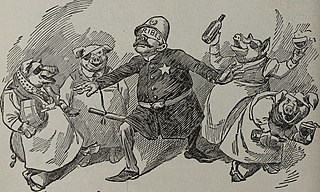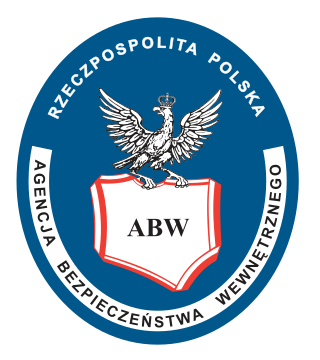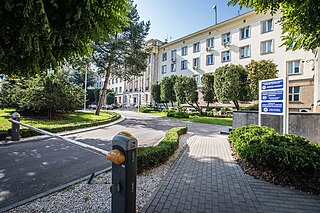
Andrzej Zbigniew Lepper was a Polish politician, Deputy Prime Minister, Minister of Agriculture, and the leader of Self-Defence of the Republic of Poland. Known for his radical rhetoric and aggressive protests, Lepper was considered a far-left populist, compared to left-wing figures such as José Bové, Hugo Chávez, Evo Morales, and Juan Perón. He left a long-lasting impact on Polish politics, emerging as the "defender of the oppressed and (...) all working people, the weak, and the needy." He was particularly known for his Balcerowicz must go slogan, which he coined to protest the neoliberal Balcerowicz Plan that had deregulated and privatized the Polish economy. Lepper considered the capitalist transition "economic genocide".

From 1989 through 1991, Poland engaged in a democratic transition which put an end to the Polish People's Republic and led to the foundation of a democratic government, known as the Third Polish Republic, following the First and Second Polish Republic. After ten years of democratic consolidation, Poland joined NATO in 1999 and the European Union on 1 May 2004.

Police corruption is a form of police misconduct in which law enforcement officers end up breaking their political contract and abusing their power for personal gain. This type of corruption may involve one or a group of officers. Internal police corruption is a challenge to public trust, cohesion of departmental policies, human rights and legal violations involving serious consequences. Police corruption can take many forms, such as: bribery, theft, sexual assault, and discrimination.

Jarosław Aleksander Kaczyński is a Polish politician. He co-founded the Law and Justice (PiS) party in 2001 with his twin brother and has served as its long-time leader since 2003. He served as Prime Minister of Poland from 2006 to 2007, and has twice held the post of Deputy Prime Minister of Poland, first from 2020 to 2022, and a second time from June to November 2023. He is considered to have been the eminence grise of Poland, when PiS formed the government in 2005–2007 and again in 2015–2023, with direct political influence over the prime ministers Kazimierz Marcinkiewicz, Beata Szydło and Mateusz Morawiecki.

The Internal Security Agency is Poland's domestic counterintelligence and security agency. The ABW is responsible for analyzing, reporting and preventing threats to Poland's internal security, including terrorism, foreign espionage, arms smuggling, drug trafficking, organized crime, corruption and economic coercion. Its powers include arresting individuals, conducting searches and investigations, and combating terrorism with a specialized armed anti-terrorist force.

Mariusz Kamiński is a Polish politician who served as the head of the Central Anticorruption Bureau (CBA) from August 2006 to October 2009. He served between 2019 and 2023 as the Minister of the Interior and Administration, in addition to coordinating Polish secret services, which he had done previously as a minister without portfolio. Kamiński also served as a member of the Sejm.

Sławomir Ryszard Nowak is a Polish politician and a state official in Ukraine. He was elected to the Sejm on 25 September 2005, getting 9,061 votes in 25 Gdańsk district as a candidate from the Civic Platform list.

Julia Teresa Pitera, née Zakrzewska, is a Polish politician of the Civic Platform.

Tomasz Wojciech Misiak is a Polish politician and businessman. He co-founded Work Service, the biggest Polish employment agency and served as a senator, representing Civic Platform.

The National Anticorruption Directorate, formerly National Anticorruption Prosecution Office, is the Romanian agency tasked with preventing, investigating and prosecuting corruption-related offenses that caused a material damage to the Romanian state. The institution deals with the fight against high corruption offences, which have caused damage greater than €200,000 or if the object of the crime is property or sums of money amounting to over €10,000.

Crime in Poland refers to the incidence, deterrence, and handling of criminal activity in the Republic of Poland by Polish law enforcement agencies charged with ensuring public safety and maintaining order. Poland ranks favorably in terms of public safety, with one of the lowest homicide rates in Europe. Poland was ranked 25th in the 2022 Global Peace Index and scored 0.0 on the 2023 Global Terrorism Index.

Law enforcement in Poland consists of the Police (Policja), City Guards, and several smaller specialised agencies. The Prokuratura Krajowa and an independent judiciary also play an important role in the maintenance of law and order.

After the dismissal of Benazir Bhutto's first government on 6 August 1990 by President Ghulam Ishaq Khan on grounds of corruption, the government of Pakistan issued directives to its intelligence agencies to investigate the allegations. After the fourth national elections, Nawaz Sharif became the Prime Minister and intensified prosecution proceedings against Bhutto. Pakistani embassies through Western Europe—in France, Switzerland, Spain, Poland and Britain—were directed to investigate the matter. Bhutto and her husband faced a number of legal proceedings, including a charge of laundering money through Swiss banks. Though never convicted, her husband, Asif Ali Zardari, spent eight years in prison on similar corruption charges. After being released on bail in 2004, Zardari suggested that his time in prison involved torture.

The Chancellery of the Prime Minister of Poland, or KPRM, is the executive office for the Prime Minister of Poland. Created under the administrative reorganization reforms by the government of Włodzimierz Cimoszewicz in 1996 and implemented in the following year, the Chancellery assumed many responsibilities of the previous Office of the Council of Ministers. In addition to serving as the premier's office, the Chancellery oversees the technical, legislative, legal and organizational support for the Prime Minister, Deputy Prime Minister and the Council of Ministers. The current Chief of the Chancellery is Jan Grabiec.

Corruption in Romania has decreased in recent years. In particular since 2014, Romania undertook a significant anti-corruption effort that included the investigation and prosecution of medium- and high-level political, judicial and administrative officials by the National Anticorruption Directorate. The National Anticorruption Directorate was established in 2002 by the Romanian government to investigate and prosecute medium and high-level corruption related offenses, using a model of organization inspired by similar structures in Norway, Belgium and Spain. Adrian Zuckerman, the US Ambassador in Romania, has stated in 2021 that "the rule of law has been strengthened in Romania". Since 2022, the effectiveness of the investigation and sanctioning of high-level corruption further improved, including by advancing on cases that had been pending for years for procedural reasons.

Corruption in Poland is below the world average but not insignificant. Within Poland, surveys of Polish citizens reveal that it is perceived to be a major problem.

Since independence, corruption has been more than prevalent in Cameroon. The pervasiveness of corruption has affected all sectors of the government and civil society including the executive, judiciary, police, and the private sector. The main causes being a deep lack of political will to fight corruption and neopatrimonialism. Other causes include personal interests and absence of duty conscience, a weakened judiciary with minimal or non-existent opposition in the legislative branch, nepotism and favouritism, and ineffective accountability systems.

Oleksandr Oleksandrovich Danylyuk is a Ukrainian politician and military serviceman who served as the Secretary of the National Security and Defense Council (2019), the Minister of Finance of Ukraine (2016-2018). Danylyuk is a co-founder and the Head of the Center for National Resilience and Development.

















